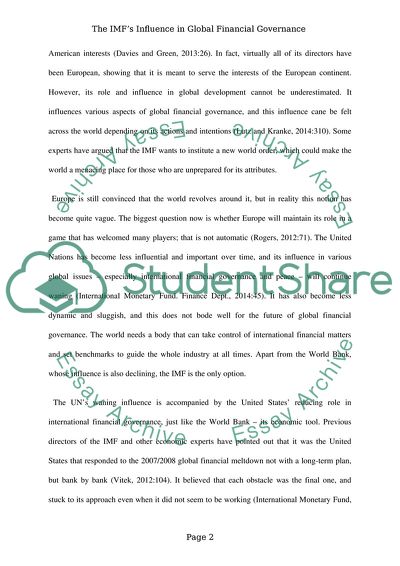Cite this document
(The IMFs Influence in Global Financial Governance Coursework Example | Topics and Well Written Essays - 3000 words, n.d.)
The IMFs Influence in Global Financial Governance Coursework Example | Topics and Well Written Essays - 3000 words. https://studentshare.org/macro-microeconomics/1855083-to-what-extent-is-the-international-monetary-fund-a-powerful-actor-in-global-financial-governance
The IMFs Influence in Global Financial Governance Coursework Example | Topics and Well Written Essays - 3000 words. https://studentshare.org/macro-microeconomics/1855083-to-what-extent-is-the-international-monetary-fund-a-powerful-actor-in-global-financial-governance
(The IMFs Influence in Global Financial Governance Coursework Example | Topics and Well Written Essays - 3000 Words)
The IMFs Influence in Global Financial Governance Coursework Example | Topics and Well Written Essays - 3000 Words. https://studentshare.org/macro-microeconomics/1855083-to-what-extent-is-the-international-monetary-fund-a-powerful-actor-in-global-financial-governance.
The IMFs Influence in Global Financial Governance Coursework Example | Topics and Well Written Essays - 3000 Words. https://studentshare.org/macro-microeconomics/1855083-to-what-extent-is-the-international-monetary-fund-a-powerful-actor-in-global-financial-governance.
“The IMFs Influence in Global Financial Governance Coursework Example | Topics and Well Written Essays - 3000 Words”. https://studentshare.org/macro-microeconomics/1855083-to-what-extent-is-the-international-monetary-fund-a-powerful-actor-in-global-financial-governance.


